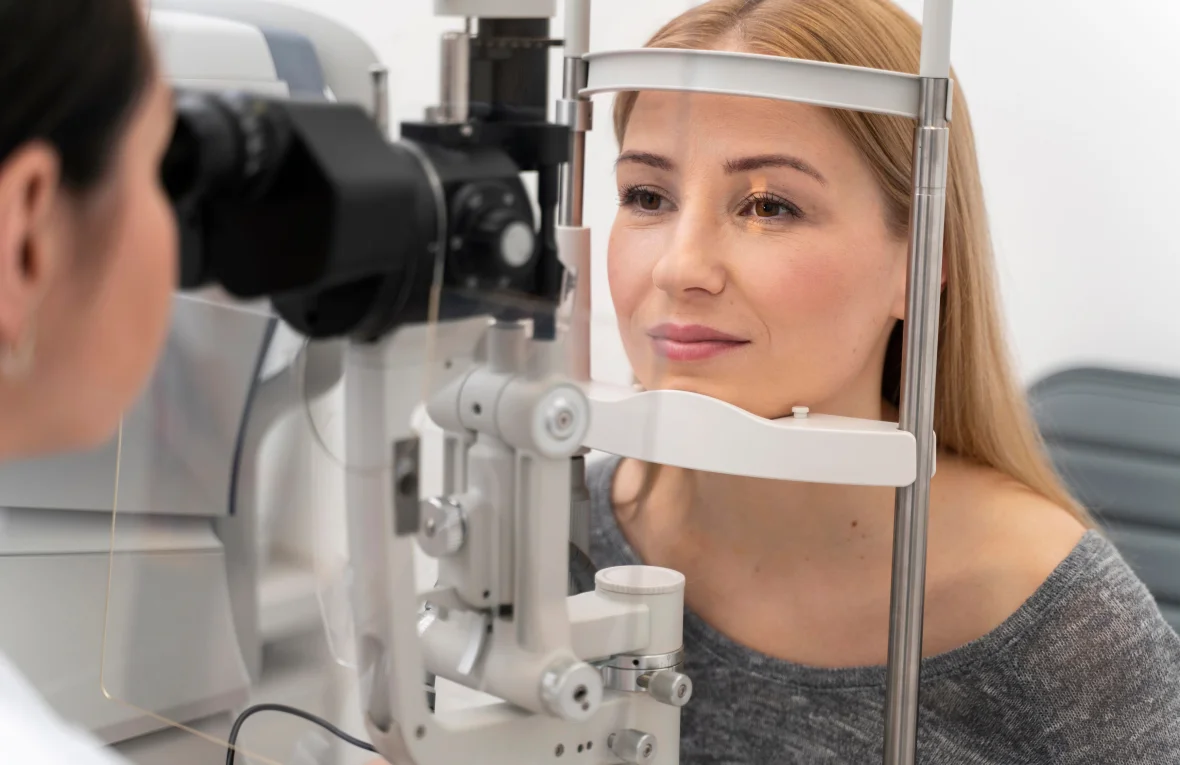About Comprehensive Eye Exams
At Swami Optical, Your Vision Is Our Priority
We offer a full range of eye care services designed to keep your vision sharp, comfortable, and healthy. Whether you need routine checkups, advanced optical solutions, or expert guidance in choosing the right eyewear, our qualified opticians are here for you.
Vision Screening & Eye Health Checkups
Regular eye evaluations are essential, even if you don’t wear glasses. Our advanced equipment and experienced team ensure accurate vision testing and early detection of any potential issues such as dryness, redness, or strain.
Prescription Glasses & Lens Fitting
From single vision to progressive lenses, we provide precise prescriptions tailored to your daily needs. Our experts help you choose from a wide range of stylish and durable frames that match your face shape and lifestyle.
Advanced Digital Eye Testing
Experience the precision of computerised eye checkups using high-quality digital instruments for fast, reliable, and comfortable assessments.
Frequently Asked Questions
How often should I have an eye exam?
It’s recommended that adults have a comprehensive eye exam every 1-2 years, even if your vision seems fine. For children, their first eye exam should be at 6 months, followed by another at 3 years old, and then annually during school years. If you wear glasses or contact lenses or have a medical condition like diabetes, you may need more frequent exams.
What are the signs that I need glasses?
If you’re experiencing frequent headaches, eye strain, blurry vision (either up close or at a distance), difficulty seeing at night, or squinting to focus, these could be signs that you need glasses. A comprehensive eye exam will determine if corrective lenses are necessary.
What causes dry eyes, and how can I treat it?
Dry eyes can be caused by aging, certain medications, environmental factors, or prolonged screen use. Treatment options include artificial tears, prescription eye drops, and lifestyle adjustments such as taking breaks from screens. An eye doctor can recommend the best course of treatment based on the severity of your symptoms.
Are there ways to prevent common eye diseases like glaucoma or cataracts?
While you can’t always prevent eye diseases, there are steps you can take to reduce your risk. These include wearing UV-blocking sunglasses, eating a healthy diet rich in antioxidants, avoiding smoking, and having regular eye exams to catch any issues early. Managing conditions like diabetes or high blood pressure can also help protect your eye health.

